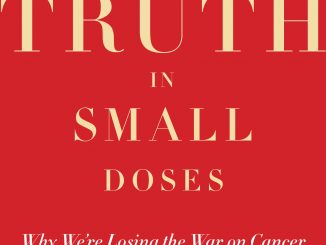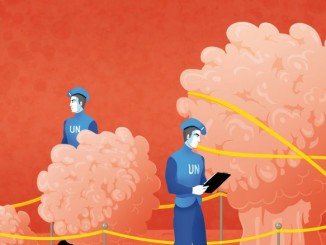To mark 30 years of helping to improve the quality of care provided to cancer patients, ESO is convening a jury of 100 experts at the World Oncology Forum in Lugano this October to examine the progress in the war against cancer. Guest editor Franco Cavalli asks: what will the verdict be?
by Franco Cavalli
Are we winning the war against cancer? This is the provocative title of the World Oncology Forum (WOF), which will take place in Lugano, Switzerland on October 25–27, to mark the 30th year of the European School of Oncology. Rather than hosting a party or a more conventional symposium, ESO feels this is the right moment to tackle some of the big questions the cancer community needs to address. Researchers, directors of cancer institutes, policy makers, chairpersons of professional and research organisations, and representatives of pharmaceutical companies, patients organisations, and international organisations such as the WHO – 80 experts in total – will gather together for two days of intense discussion. A special feature of WOF will be the participation of 20 scientific journalists who will play the role of devil’s advocate, challenging the logic and the evidence for the propositions put forward.
Our understanding of the biology of cancer has improved tremendously in recent years, opening many avenues for new treatments that could work better. But how much of the progress that we seem to have achieved with targeted therapies and so-called personalised medicine is really being translated into better outcomes, and how much is hype? What can we do about the rapidly rising number of cancer cases and deaths in low- and middle-income countries, where options for prevention, early diagnosis and treatment are so limited? Many of these countries spend only around $50–100 per person on health every year, while the cost of the latest targeted therapies in rich countries averages $150,000 per patient per year. Can we develop sustainable treatment options? These are some of the questions we will be debating at WOF.
Will we find answers? This is a very complex topic, which may be the main reason why last September’s UN Summit on non-communicable diseases, which recognised the huge and increasing burden of cancer worldwide, failed to come up with precise commitments and deadlines. WOF will carry this discussion further, helping to sharpen the focus and the boundaries of this extremely important debate. We are proud to have the cooperation of The Lancet. Its editor-in-chief, Richard Horton, will lead the final session, where he will ask the conference to weigh up the arguments heard over the two days and answer the question: “Are we winning the war against cancer?” I’m sure I’m not the only one who is eagerly awaiting the verdict.
Franco Cavalli is the Chairman of the World Oncology Forum and ESO Scientific Committee





